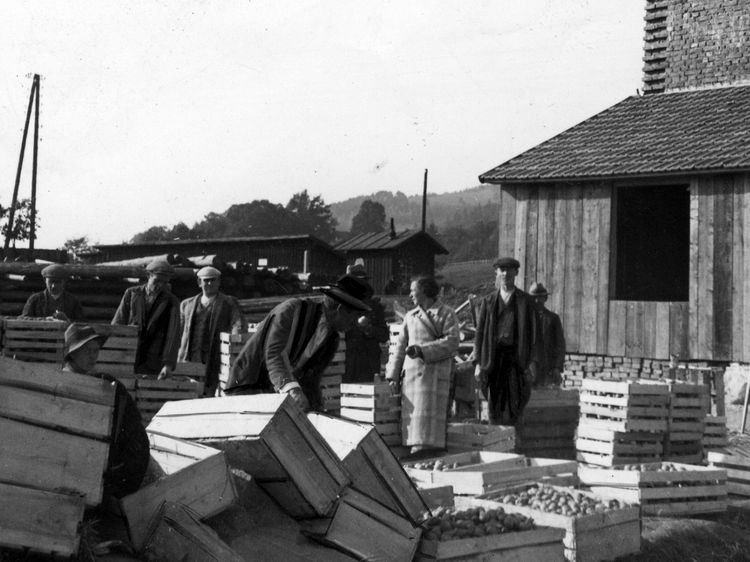Marie Nečásková
Marie Nečásková (1890–1971) was a leading figure in the co-operative movement of interwar Czechoslovakia, committed to education, social democracy, and the advancement of women in public life. As a functionary of the Central Union of Czechoslovak Co-operatives, she worked to popularize consumer co-operatives and ensure women’s active participation in them. She organized propaganda events, wrote educational pamphlets, and built structures for women’s training, promoting co-operatives as a vital resource for working-class families. Beyond the immediate benefits, for Nečásková, co-operativism had the power to improve society as a whole:
Co-operativism […] wanted to reshape the whole of human society into a better world order by way of development. In this utopian world, there would be no oppressed and no hunger, and it would provide every working man a worthy life.
Her activism quickly reached an international stage. Nečásková represented Czechoslovakia at several conferences of the International Co-operative Women’s Guild (ICWG), where she became a member of its Central Committee. In 1929, she was photographed alongside fellow leaders of the ICWG visiting President Tomáš Garrigue Masaryk, a moment that symbolized the visibility and legitimacy of women’s co-operative work in Czechoslovakia.

The Board of the ICWG visiting the President of Czechoslovakia, Tomáš Garrigue Masaryk. Second from right, Marie Nečásková, far left, Emmy Freundlich. Prague, Czechoslovakia, 6 April 1929.
One of Nečásková’s most influential contributions was her paper “State Allowances for Mothers at Home”, published in Mothers of the Future (1930). Here she articulated a social democratic response to the dilemmas faced by women who had to balance wage labour, motherhood, and domestic responsibilities. Nečásková observed that proletarianization placed on women “a three fold burden, to be wage-earners, mothers, and housewives”. She was nevertheless sceptical of proposals for communal kitchens or children’s homes, fearing these would undermine family life. Instead, she argued for direct state allowances to be paid to mothers, ensuring them economic opportunities and the possibility of devoting themselves to raising children without being forced into constant wage work.
Her position was sharply criticized by communist co-operative women, who regarded it as conservative and accused her of luring working-class women away from revolutionary struggle. Yet her advocacy reflected a broader interwar debate about how best to relieve the burden of women’s unpaid domestic work, be it through state financial support, communal services, or systemic political change.
Beyond ideological disputes, Nečásková remained focused on education and spreading information about co-operatives. She published on the role of women in the co-operative movement and the importance of consumer co-operatives for workers’ families, and gave speeches at meetings aimed at spreading the values of co-operation among women. She sought to make co-operatives not only sites of economic solidarity but also spaces of women’s empowerment. Working within the framework of social democracy, Nečásková linked local co-operative and educational work with international advocacy. Her insistence that mothers deserved both recognition and material support placed her at the heart of interwar struggles over the meaning and value of women’s labour, at home and beyond.


